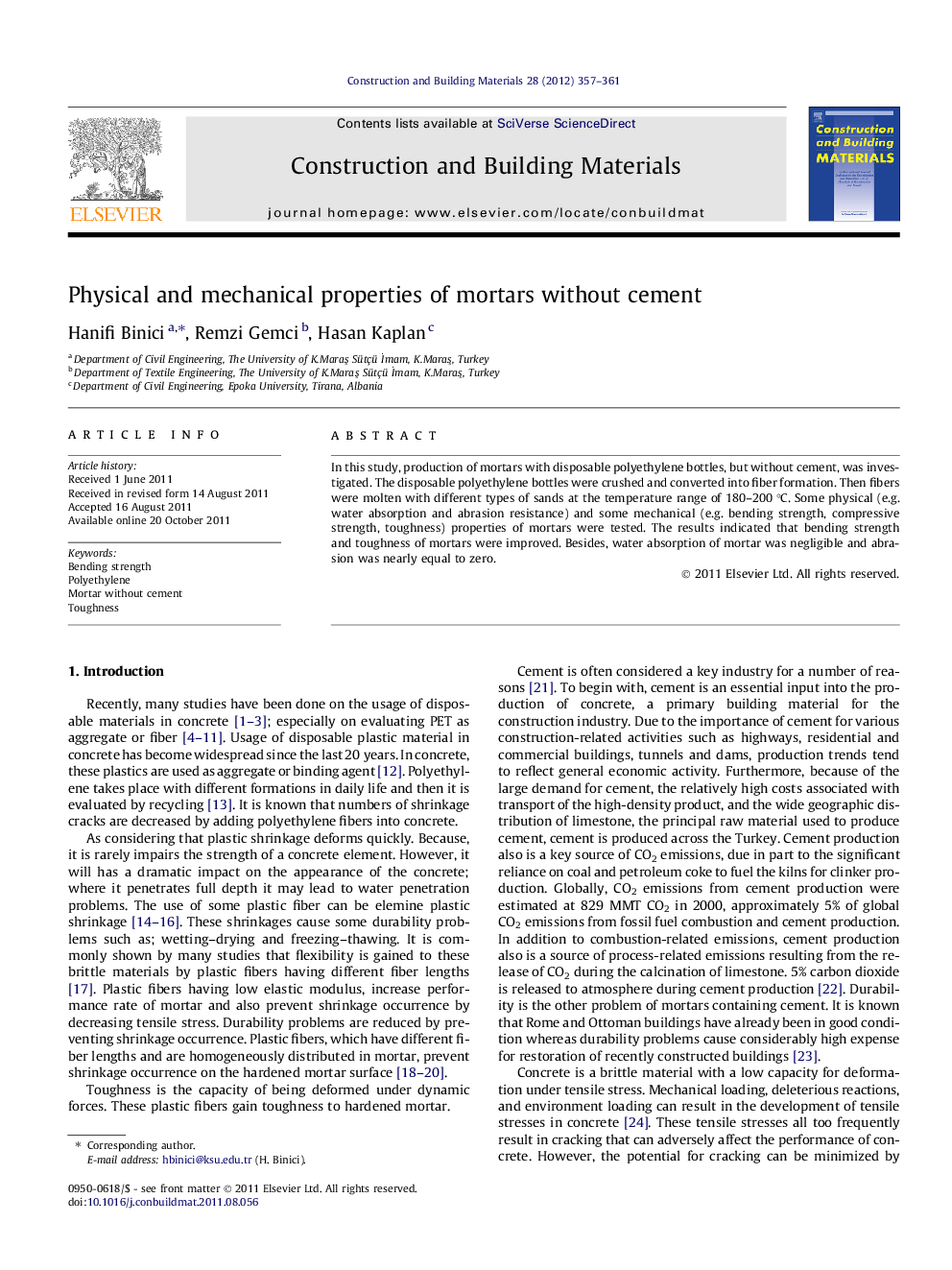| Article ID | Journal | Published Year | Pages | File Type |
|---|---|---|---|---|
| 259585 | Construction and Building Materials | 2012 | 5 Pages |
In this study, production of mortars with disposable polyethylene bottles, but without cement, was investigated. The disposable polyethylene bottles were crushed and converted into fiber formation. Then fibers were molten with different types of sands at the temperature range of 180–200 °C. Some physical (e.g. water absorption and abrasion resistance) and some mechanical (e.g. bending strength, compressive strength, toughness) properties of mortars were tested. The results indicated that bending strength and toughness of mortars were improved. Besides, water absorption of mortar was negligible and abrasion was nearly equal to zero.
Graphical abstractPolyethylene improves flexibility of concretes and increases toughness. Concretes containing quartz have higher toughness. On the other hand, flexibility of concretes with pumice sand is higher than that of others. Pumice develops flexibility due to its high amorphous structure. Higher toughness is the result of high stiffness and more crystalline structure of quartz.Figure optionsDownload full-size imageDownload as PowerPoint slideHighlights► The disposable polyethylene bottles were crushed and converted into fiber formation. ► Fibers were molten with different types of sands at the temperature range of 180–200 °C. ► Bending strength and toughness of mortars were improved. ► Besides, water absorption of mortar was negligible and abrasion was nearly equal to zero.
